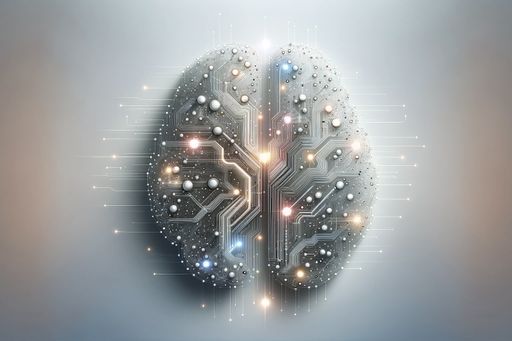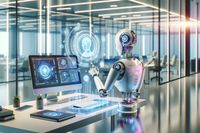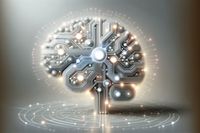The AI Tools That May Impact Hiring Decisions
Learn about the AI tools that employers are using to streamline recruitment processes and the potential pitfalls associated with them.

The Experiment with AI Tools
Investigating the use of artificial intelligence (AI) in the world of work, journalist Hilke Schellmann decided to try out some of the tools herself. One such tool was myInterview, a one-way video interview system intended to aid recruitment. Schellmann recorded her answers as a candidate, and the proprietary software analyzed her words and voice intonation to score her suitability for the job.
Surprisingly, when Schellmann conducted the interview in her native German instead of English, she received a decent score despite not answering the questions. The tool's transcript of her German response was gibberish, but it still recognized that she wasn't speaking English and scored her based on intonation. This led Schellmann to question the effectiveness of these tools in the hiring process.
Troubling Pseudoscience and Discrimination
Many of the AI-based hiring tools are not only ineffective but also based on troubling pseudoscience, according to Schellmann. For example, the idea that voice intonation can predict job success lacks scientific evidence. Additionally, these tools can perpetuate discrimination.
Schellmann discusses the flaws in digital monitoring, such as measuring productivity based on faulty metrics like keystrokes and mouse movements. More advanced AI-based surveillance techniques, like flight risk analysis and sentiment analysis, also have low predictive value. The use of these tools in hiring can have serious consequences, and Schellmann argues that we should not settle for technology that doesn't work and isn't fair.
Lack of Transparency and Bias
Schellmann highlights the difficulty in understanding how employers use these tools, as companies tend to keep their use quiet. Candidates and employees are often unaware that AI may screen their one-way video interviews instead of humans. Furthermore, these tools are not limited to hourly wage jobs but are also making their way into knowledge-centric roles.
Schellmann examines four classes of AI-based tools used in hiring: one-way interviews, online CV screeners, game-based assessments, and social media analysis. She finds that none of these tools are ready for prime time. For example, game-based assessments lack clarity on how they evaluate relevant skills, and different social media feeds can produce varying personality predictions. CV screeners can also introduce bias, as seen in the example where candidates who listed baseball as a hobby received more points than those who listed softball.
The Need for Scrutiny and Regulation
Schellmann calls for HR departments to be more skeptical of the hiring and workplace monitoring software they deploy. She suggests asking questions and testing products to ensure their effectiveness and fairness. She also advocates for regulation, ideally in the form of a government body that checks these tools for effectiveness and non-discrimination before they hit the market. Requiring vendors to release technical reports about their tools' development and validation could also be a step towards transparency and accountability.
While these tools continue to be used, jobseekers can utilize AI tools like ChatGPT to assist them in writing cover letters, polishing CVs, and preparing for interviews. Schellmann sees this as a way for candidates to regain some power in the hiring process.



